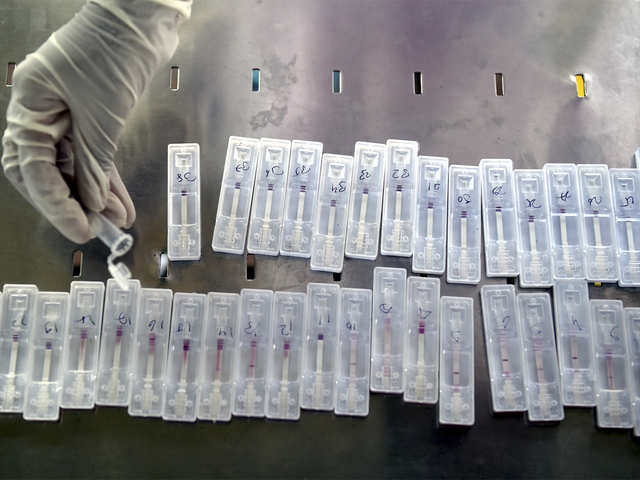24 Jun 2021, 12:04 PM IST
PTI
2/8
What is Delta Plus variant?
3/8
What does ‘variant of concern’ mean?
PTI
4/8
What are the points of concern?
AP
5/8
Do vaccines work against the variant?
AFP
AP
7/8
Is there a cause for worry?
AP
8/8
What needs to be done?
AP
Read more on
Credits – Source – https://ift.tt/3zMbkG2
The post Delta Plus labeled ‘variant of concern’: What you should know about the variant appeared first on Stay in Gurgaon.
The health ministry has categorised Delta Plus variant as a ‘variant of concern’. About 40 cases have been found so far across Maharashtra, Kerala and Madhya Pradesh. The mutation could be a problem though its prevalence is very low. The government said the role of the mutation in immune escape, disease severity and increased transmissibility is under continued surveillance. Teena Thacker explains
It is a mutation of the Delta variant. The scientific name of the Delta Plus variant is AY.1 or B.1.617.2.1. It is characterised by K417N mutation in spike protein, which allow the virus to gain entry into human cells.
The WHO introduced two classifications following the emergence of several variants of the coronavirus. The Variant of Concern indicates highest threat perception among other coronavirus variants along with possibly increased transmissibility, infectivity, or resistance to vaccines. Variant of Interest refers to Lower threat perception.
This mutation was also present in the Beta variant, which was reported to have immune evasion property. The variant is also likely resistant to monoclonal antibody cocktail treatment. It is not yet clear if it is more virulent or of higher severity
The Delta variant is found in 80 countries, including India. While the health ministry says both Covishield and Covaxin effective against the Delta variant, it is yet to be established if they are equally effective against Delta Plus.
Among over 45000+ samples sequenced, the variant has been observed sporadically. Around 40 cases have been found in Maharashtra, Kerala and MP. Delta Plus has been found in nine countries: the United States, the United Kingdom, China, Russia, Portugal, Switzerland, Japan, Poland and Nepal.
Currently, the frequency of variant in India is very low. There are very few cases of Delta Plus variant also in India. It is also important to note that resistance to monoclonal antibody cocktail might not indicate increased virulence.
Increased surveillance and genome sequencing is required to map its spread, along with enhanced testing, quick contact-tracing, priority vaccination where variant was found








Comments
Post a Comment